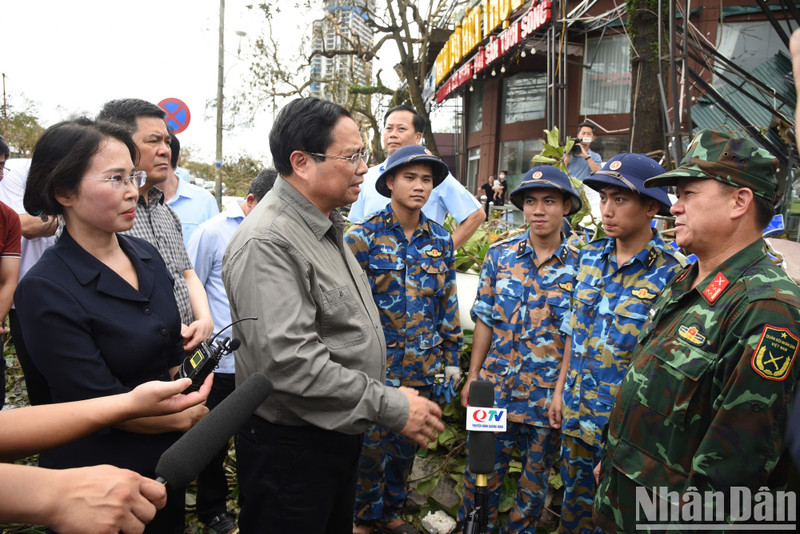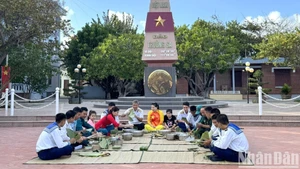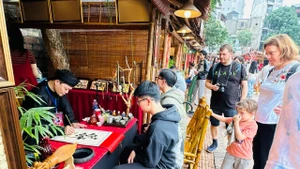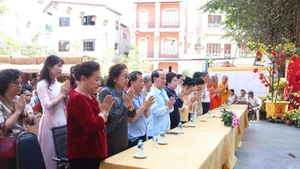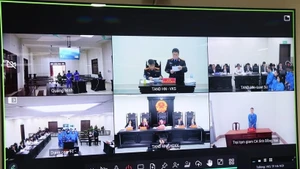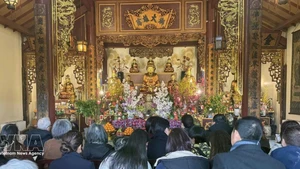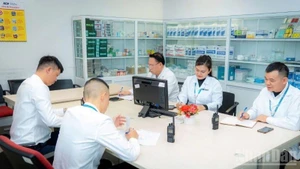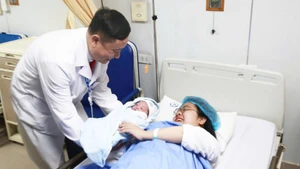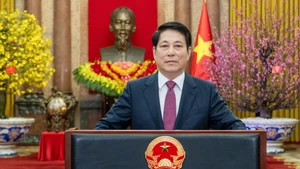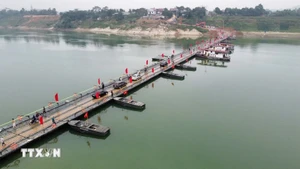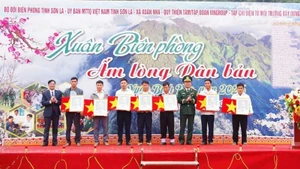During his visit to affected households and businesses, PM Chinh urged local Party committees, administrations, Vietnam Fatherland Front committees, and socio-political organisations at all levels to work together to rebuild homes, stabilise lives and restore business activities.
He praised and encouraged workers, youth union members, and military personnel who were clearing debris and streets, asking for extra efforts to make Ha Long city clean and green again, with food and traffic safety ensured.
At Quang Ninh General Hospital, the PM reassured injured persons under intensive treatment about the Party and State’s care for people's well-being and safety. He instructed Quang Ninh and its healthcare sector to focus on treating the injured, ensuring that no one is left without medical care or medicine.
In a working session with the provincial authorities, PM Chinh called for the involvement of the entire political system and social-political organisations, and especially the army, in the recovery work.
He assigned Vietnam Electricity and telecom providers to urgently deploy personnel, equipment and materials to restore power and telecom services in Quang Ninh as quickly as possible.
Commercial banks were advised to consider providing and restructuring loans, postponing debt payments, while the tax sector was urged to extend deadlines and reduce taxes and fees for businesses and individuals severely affected by the typhoon.
The Ministry of Agriculture and Rural Development was tasked with considering support policies for those suffering damage to crops and aquatic resources.
As of September 8 noon, the typhoon claimed four lives and injured 157 others in Quang Ninh province. The search and rescue force saved 27 people who were drifting at sea. There were 19,582 damaged houses, 21 shipping vehicles, 23 cruise vessels, and 41 fishing boats either sunk or were adrift. Over 1,000 fish farming cages were lost or swept away, while 17,000 sq.m of aquaculture works, many high-rise buildings, government offices, and schools have been damaged.
On the same day, Permanent Deputy PM Nguyen Hoa Binh inspected typhoon-ravaged areas in the northern province of Nam Dinh, where no fatalities were recorded, but material damage was substantial. Agricultural losses included about 5,000 hectares of rice fields, 230 hectares of vegetables, 20 hectares of catfish farms, and 220 hectares of intensive shrimp farming.
Thousands of shade trees were downed, and several flood control and disaster prevention works suffered erosion and subsidence.
Meanwhile, Deputy Prime Minister Ho Duc Phoc also came to inspect recovery efforts in the northern mountainous province of Hoa Binh.
